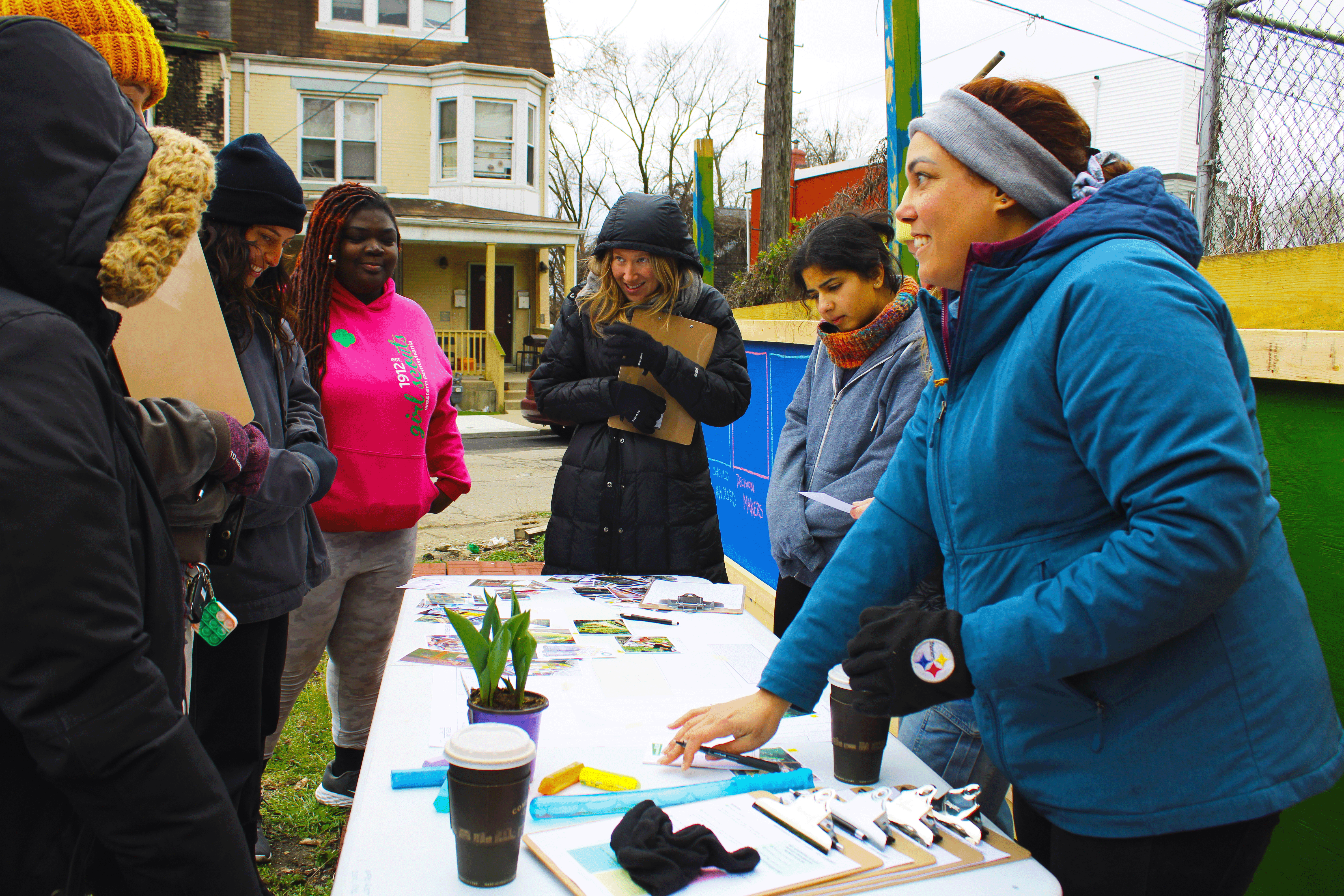By: Diane I. Daniels | New Pittsburgh Courier | September 22, 2016
Read the full article here.

ALL IN—Bill Generett, Urban Innovation21 President and CEO; Angela Glover Blackwell, PolicyLink President and CEO; Mayor William Peduto and Presley Gillespie, Neighborhood Allies President all are concerned about setting an equitable agenda for Pittsburgh. (Photos by Diane I. Daniels)
More than 100 Pittsburgh stake holders including Mayor William Peduto were present Friday, Sept. 16 at the August Wilson Center to witness the unveiling of the Equitable Development: The Path to an All-In-Pittsburgh Report.
PolicyLink, Neighborhood Allies and Urban Innovation21 who convened Pittsburgh community leaders to create a shared definition of equitable development and craft an agenda to make it a reality orchestrated the report, which sets an equitable agenda for Pittsburgh. The report was designed to present a roadmap to put all of the region’s residents on track to reaching their potential. Officials are realizing that too many residents remain cut off from opportunity by poverty, structural racism, and discrimination.
Considered a city on the rise, Angela Glover Blackwell, PolicyLink president and CEO said Pittsburgh is the perfect place to start an All-In Cities initiative. “As the city successfully transforms its economy and sees a wave of new development, an equitable development strategy is essential to ensure that all neighborhoods and residents, including those of color, participate and benefit. Achieving full inclusion will lead to sustainable and shared prosperity.”
During the two-hour presentation and panel discussion Sarah Treuhaft, Director of Equitable Growth Initiatives at PolicyLink provided a sketch of the report. She defined Equitable development as a positive development strategy that ensures everyone participates in and benefits from the region’s economic transformation—especially low-income residents, communities of color, immigrants, and others at risk of being left behind. It requires an intentional focus on eliminating racial inequities and barriers, and making accountable and catalytic investments to assure that lower wealth residents; live in healthy, safe, opportunity rich neighborhoods that reflect their culture and are not displaced from them; connect too economic and ownership opportunities; and have voice and influence in the decisions that shape their neighborhoods. Read more.

